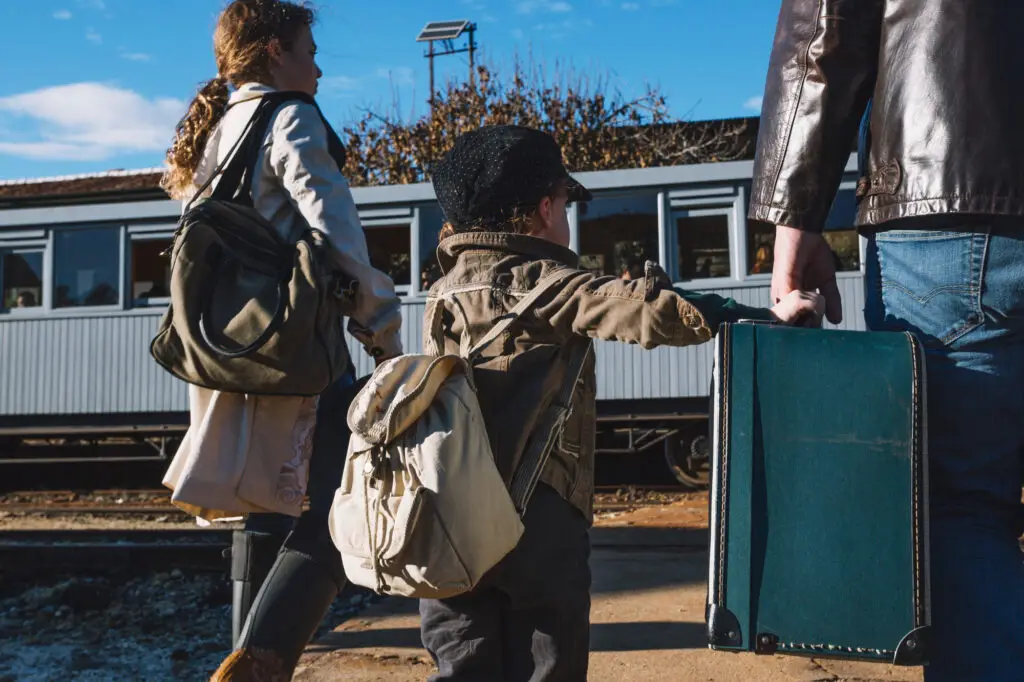German government rejects fact-finding trips to Syria
In recent weeks, leading CDU/CSU politicians have increasingly focused on the issues of return, deportation and travel to Syria. Interior Minister Dobrindt has repeatedly emphasized that travel to the country from which one has fled is not compatible with protection status. In his view, anyone who travels to the country in which they were persecuted is sending the signal that there is no longer any danger there - and therefore no reason for protection in Germany.
In a recent interview with Der Spiegel, Dobrindt also expressly rejects so-called fact-finding trips. This refers to trips where refugees want to check the current situation in their home country - for example, to see whether it would be possible to return one day.
According to Dobrindt, this information can also be obtained via family or online. Anyone who travels anyway must expect to lose their lose their protection status in Germany.
German Chancellor Friedrich Merz (CDU) also supports this line. He has repeatedly emphasized that civil war refugees should return to their home countries as soon as the situation there improves. People who are politically or religiously persecuted should continue to receive protection. For many Syrian refugees, however, the Union is questioning their long-term prospects of staying - especially if they travel to Syria.
But what exactly does the law say? Who is allowed to travel to their home country - and when is there a risk of losing protection status?

Since October 2024, Section 47b AufenthG has regulated the obligation to notify the authorities when traveling home with protection status. Find out which requirements apply, what risks exist and how you can avoid having your protection status revoked. All information on exceptions, consequences and practical tips....
§ Section 47b AufenthG and notification obligation for trips home
Alexander Dobrindt's statements are based on a new law that has only been in force since October 2024. The provision(Section 47b AufenthG) obliges persons entitled to protection to notify the Foreigners' office in advance of every trip to their home country.
It states: "Persons entitled to asylum and foreigners who have been granted international protection or for whom a prohibition of deportation has been established in accordance with Section 60 (5) or (7) are obliged to notify the competent Foreigners' office of any travel to their country of origin and the reason for the trip prior to departure."
Anyone who fails to report a trip to their home country risks having their protection status withdrawn - and in the worst case even deportation.
Who has to report a trip to their home country?
Persons with international or asylum protection status are affected by the obligation to report. This includes in particular
- Persons entitled to asylum according to § 25 para. 1 AufenthG
- Recognized refugees or persons with subsidiary protection pursuant to Section 25 (2) AufenthG
- Persons with a national ban on deportation pursuant to Section 25 (3) AufenthG
- Holders of a settlement permit based on a protection status (Section 26 (3) and (4) AufenthG)
If you belong to one of these groups, you must notify the Foreigners' office in advance of any trip to your home country. The notification should be made in writing and include the date, duration and reason for the trip.
Important: The Foreigners' office cannot prohibit travel. However, it is obliged to pass the information on to the Federal Office for Migration and Refugees (BAMF). After the return, the BAMF checks whether the protection status continues to exist or whether a revocation procedure is initiated.
Persons with other residence permits - such as for work, study, family reunification or temporary protection under Section 24 AufenthG - do not generally have to report trips home.
When are trips with protection status permitted?
The law does not prohibit travel home with protection status in principle, but sets very strict limits. They are only permitted in exceptional cases of particular moral importance - so-called "morally compelling reasons". These include above all
- End-of-life care or funeral of a parent, child or spouse
- Acute danger to the life of a close family member
- Caring for a seriously ill relative in acute distress
In these cases, authorities usually require medical certificates, death certificates or other official proof.
However, reasons such as
- Weddings (including your own) and family celebrations
- non-life-threatening illnesses
- Homesickness or a visit from relatives
- Inheritance matters or clarification of property issues
The hurdle is deliberately high: trips home should remain an absolute exception for persons entitled to protection.
Anyone who fails to report the trip risks a fine of up to 1,000 euros. However, the consequences under residence law are more serious: The BAMF can initiate revocation proceedings and check whether the protection status is still justified. In the worst case, the residence permit may be revoked or - if the Settlement permit is based on this - there may also be problems with the permanent title.

Are you still a minor, i.e. under the age of 18, but at least 16 years old? In this case, you can apply for a Settlement permit from the relevant Foreigners' office in accordance with Section 35 (1) sentence 1 in conjunction with Section 26 (4) sentence 4 of the Residence Act....
Conclusion: What does this mean for travel to Syria?
The current political debate is based on a clear legal situation: it is hardly possible for beneficiaries of protection to go on fact-finding trips or make private visits to their home country without risk. Trips home with protection status are only permitted in narrowly defined emergency situations and are subject to a strict notification requirement - as well as a subsequent review of whether the grounds for protection still apply. In the worst case, the Residence permit can be withdrawn.
For refugees from Syria, this means in concrete terms:
- Travel to the home country with protection status is strictly regulated by law - and politically undesirable
- Only in absolutely urgent exceptional cases should a trip home be considered at all.
- Every planned trip must be reported to the Foreigners' office in advance - without exception.
- A subsequent examination by the BAMF is always to be expected.
- In the current political situation, it can be assumed that the authorities are looking particularly closely.
- Individual legal advice is strongly recommended before traveling.









